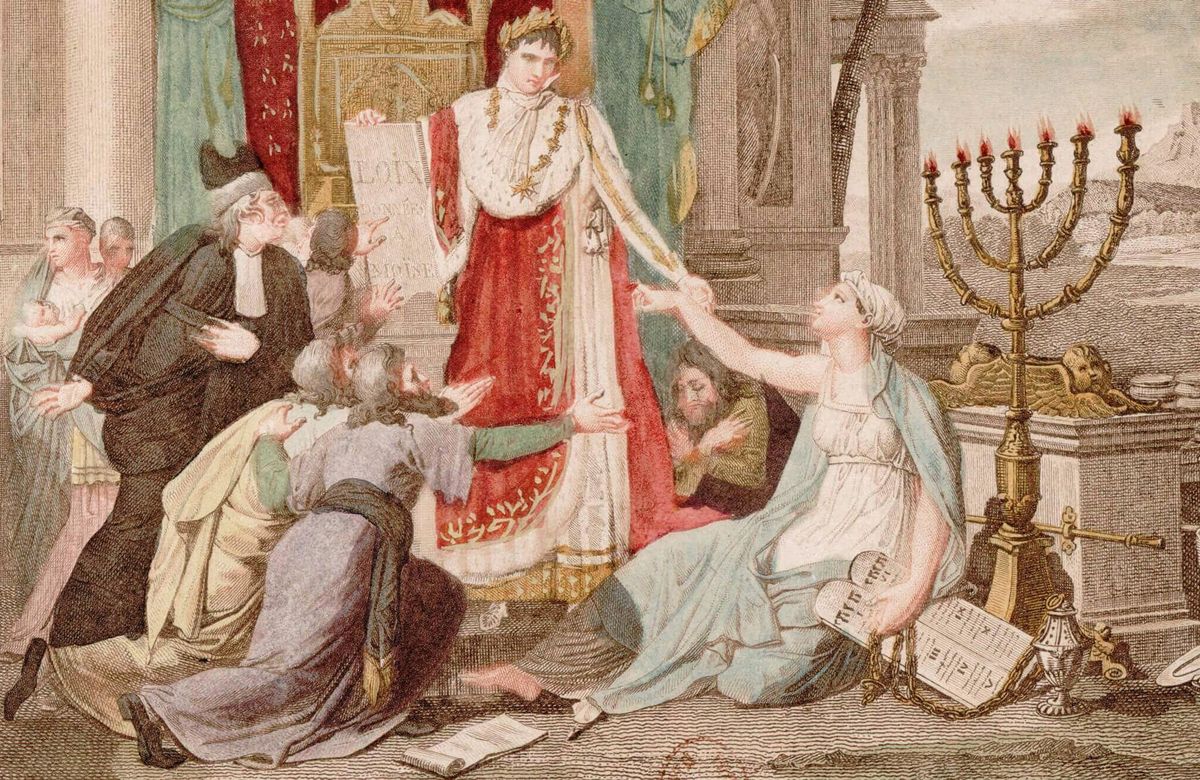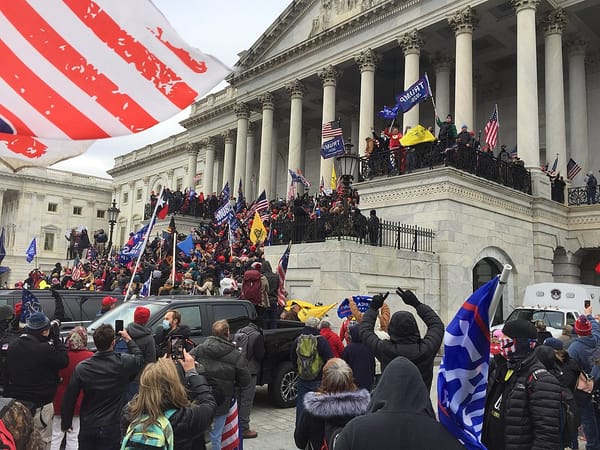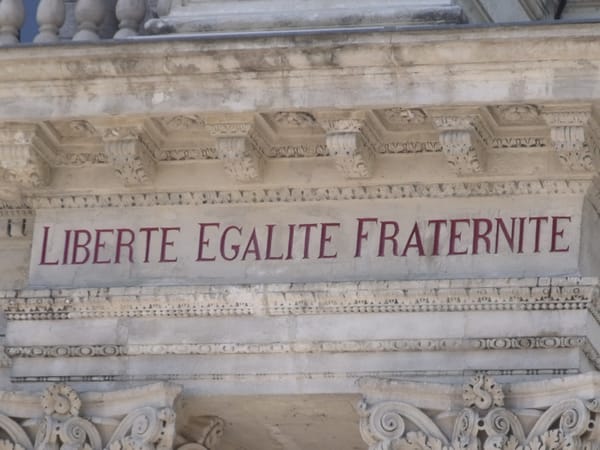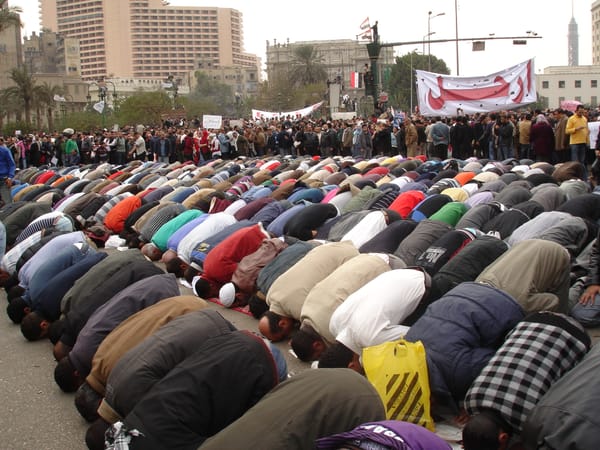Liberalism and Jewish Emancipation

How did religious freedom first emerge? This is the theme of Persecution and Toleration (CUP, 2019). Here I focus on one part of this question: how did Jews obtain civic rights?
Antisemitism has a long history in Europe. Elsewhere, I discussed its institutional foundations in the Middle Ages. But even as pogroms and antisemitic violence waned, disabilities and restrictions on Jews remained in place. It was not until the 19th century that most were removed in Western European countries. In Persecution and Toleration, Noel Johnson and I argue that this discrimination reflected the political economy of fragile states. Religious freedom was impossible in weak states reliant on religious legitimacy. But this doesn’t answer the question: How did this discrimination end? How did we get religious freedom?
The struggle for Jewish emancipation was a long one. When it finally took place it was closely associated with the emergence of modern liberal states. It was only once the institutional basis for political authority had changed that granting Jews full civil rights became feasible or even conceivable.
Here I will focus on the removal of Jewish disabilities in England. And in particular, I’ll focus on one paradigmatic statement of religious liberty that Thomas Babington Macaulay made in Parliament in 1829 in favor of ending all civil disabilities on Jews. As a statement of religious freedom and liberalism more generally, it is sadly neglected.
Traditional restrictions
Jews faced restrictions on their ability to settle, reside, work and practice their religion in all European societies before 1800. These societies were governed by religion-based identity rules, rules that treated individuals differently based on their religious faith. Britain was relatively liberal; when Jews settled in England following their invitation by Oliver Cromwell in 1655, they were free of most of the discriminatory legislation that burdened them across continental Europe. In particular, they were free of the onerous residency or marriage restrictions that burdened many communities. Nevertheless, they were excluded from political power and from occupations such as the law, government service, and the universities. They lacked religious freedom.
Attaining full religious liberty was a decades-long struggle. Even after disabilities were removed from dissenting Protestants and from Catholics, there was opposition to allowing Jews to sit in Parliament, to graduate from Oxford or Cambridge, or to serve as judges.
Understanding where this opposition came from one requires appreciating how religion upheld political order, even in a society as apparently modern as 18th-century England. Restrictions on dissenters, Catholics, or Jews did not only reflect simple prejudice. Britain was a Protestant nation. Loyalty to the state was inseparable from loyalty to the Protestant Settlement of 1689. The Church of England was a bulwark of the Constitution. Privileges and economic rents were monopolized by the Anglican elite. Catholics, Methodists, Quakers, and Jews were tolerated — they were largely free as private citizens — but they were kept away from political power.
Instrumental government
Overturning this required a new basis for political authority. As discussed in an earlier piece on Catholic emancipation by the early 19th century the threat of militant Catholicism had receded while the Church of England was itself a diminished force. Meanwhile, the narrow oligarchic post-1689 settlement was being challenged. British elites were forced to reimagine the sources of political legitimacy.

One of the first to do so was Thomas Babington Macaulay (1800–1859). As an MP, Macaulay was an establishment figure and no radical. But the view of government he laid out was fundamentally different than what had animated his predecessors. It was a secular and liberal view of the role of the state, in which identity rules based on religion had no place. It was in his view only “because men are not in the habit of considering what the end of government is, that Catholic disabilities and Jewish disabilities have been suffered to exist so long”.
We hear of essentially Protestant governments and essentially Christian governments, words which mean just as much as essentially Protestant cookery, or essentially Christian horsemanship. Government exists for the purpose of keeping the peace, for the purpose of compelling us to settle our disputes by arbitration instead of settling them by blows, for the purpose of compelling us to supply our wants by industry instead of supplying them by rapine. This is the only operation for which the machinery of government is peculiarly adapted, the only operation which wise governments ever propose to themselves as their chief object.
Macaulay is outlining a liberal, non-heroic, instrumental, view of government. The state is not a project or painting; it is a mechanism for resolving disputes peacefully and facilitating social cooperation. It is a tool meant to serve specific practical purposes rather than a religion or work of art meant to fulfill a symbolic or spiritual need.
Accept this liberal view of the state and the rest of the case for religious freedom follows. As Macaulay put it:
The points of difference between Christianity and Judaism have very much to do with a man’s fitness to be a bishop or a rabbi. But they have no more to do with his fitness to be a magistrate, a legislator, or a minister of finance, than with his fitness to be a cobbler. Nobody has ever thought of compelling cobblers to make any declaration on the true faith of a Christian. Any man would rather have his shoes mended by a heretical cobbler than by a person who had subscribed all the thirty-nine articles, but had never handled an awl. Men act thus, not because they are indifferent to religion, but because they do not see what religion has to do with the mending of their shoes. Yet religion has as much to do with the mending of shoes as with the budget and the army estimates. We have surely had several signal proofs within the last twenty years that a very good Christian may be a very bad Chancellor of the Exchequer.
Why did this argument, which seems natural to us, shock Macaulay’s contemporaries? Israel Finestein observed that in “their view it was precisely the religious difference which unfitted the Jew to be a legislator in a Christian country. To them, Macaulay’s argument was dogmatic, even irrational and certainly question-begging.”
Emancipation and resentment
Herbert Butterfield observed that
Those who are interested in the way in which liberty came to emerge will find themselves safeguarded against certain types of error if they will keep in mind that they are looking at the actions and purposes of men as these appear in retrospect—they are making their observations from the hither side of a great transition (Butterfield, 1977, 574).
Macaulay’s liberal view of the state made sense only on the other side of this transition. It presupposed a state that had moved from religion-based identity rules to general rules. And this transition, as we discuss in Persecution and Toleration, is the bedrock of modern liberal society.
Of course, once emancipated Jews excelled in numerous fields of endeavor and European society at large reaped huge economic and cultural benefits. Emancipation also had a transformative effect on Jewish communities themselves, giving rise to both the liberal Reform Judaism movement and to various strands of Orthodoxy. But emancipation also provoked a backlash.
Though the transition from identity rules to general rules and the attendant rise of modern liberal societies and of economic growth brought huge net benefits, there were many losers—individuals who lost relative status as industrialization reordered the economic order. Many blamed the Jews, who were seen as the greatest beneficiaries of the new liberal order.
Modern antisemitism arose in the late 19th century just as the last restrictions on Jews were being removed. In Bavaria, for instance, emancipation was opposed by a petition of citizens from the town of Hilders who did not wish to “humble themselves before the Jews” (Hayes, 2017, 23).
Liberalism has remained resilient in countries like Britain or the United States where its institutional and cultural foundations were strong, but it is not irreversible. To preserve these foundations it is helpful to remember how they were made. From that perspective, the case of Jewish emancipation is both instructive and cautionary.
References:
Butterfield, Herbert, “Toleration in Early Modern Times,” Journal of the History of Ideas,
1977, 38 (4), 573–584.
Finstein, Israel “A Modern Examination of Macaulay’s Case for the Civil Emancipation of the Jews.” Transactions & Miscellanies (Jewish Historical Society of England), vol. 28, 1981, pp. 39–59.
Hayes, Peter (2017). Why? Explaining the Holocaust. W.W. Norton & Company, New York.
Johnson, Noel D and Mark Koyama. Persecution and Toleration (Cambridge Studies in Economics, Choice, and Society) ( Cambridge University Press.
Thomas Babington, Lord Macaulay, Critical and Historical Essays contributed to the Edinburgh Review, 5th ed. in 3 vols. (London: Longman, Brown, Green, and Longmans, 1848). Vol. 1
Featured image is Napoleon emancipating the Jews




